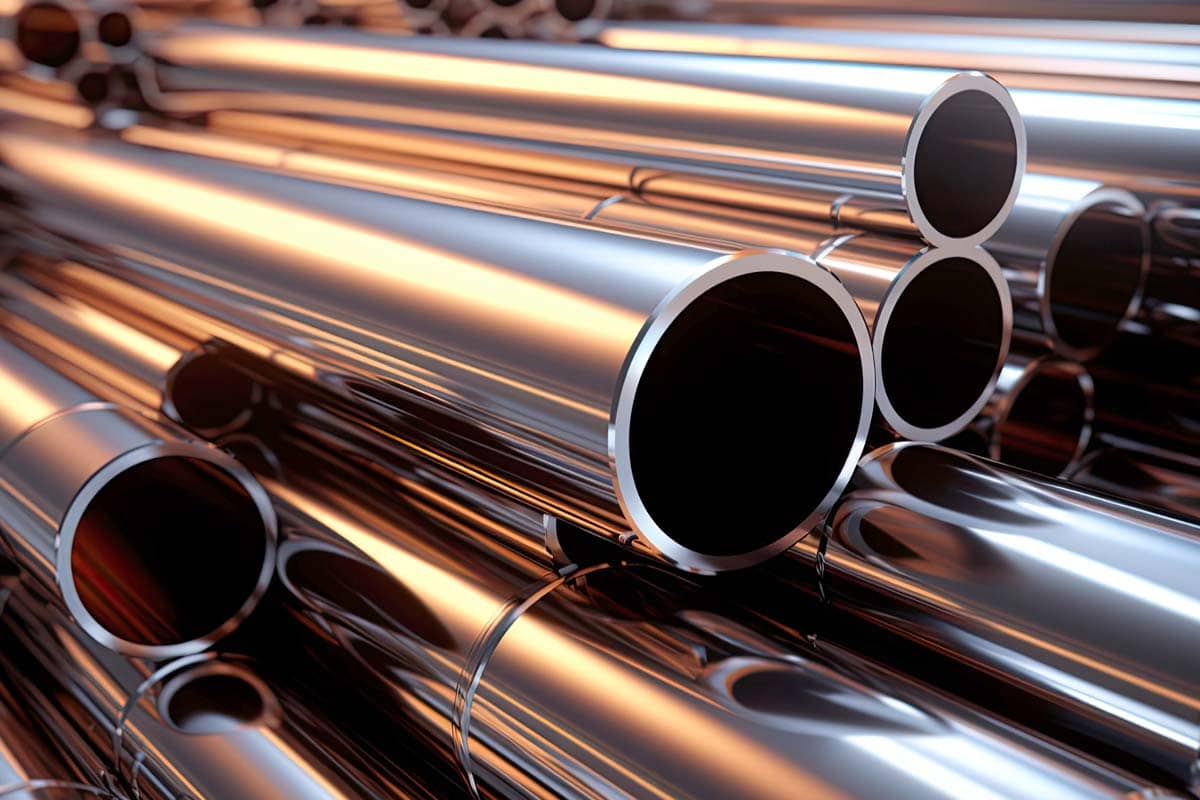Aluminum
The Difference Between Steel vs Aluminum
Steel and aluminum find extensive applications in various industries and a diverse range of projects and products. Take steel, for instance, which serves purposes ranging from crafting kitchenware and utensils to erecting structures, including numerous everyday appliances. Meanwhile, aluminum plays a crucial role in fabricating the majority of automobiles, motorcycles, bicycles, and aircraft. It also finds application in architectural aluminum extrusions, utilized for molding and enhancing the aesthetics of both residential and commercial edifices.
With so many uses for each material, you might be curious to know the difference between the two, and how to determine which material is the right option for your specific application. When you compare the strength, weight, corrosion resistance, and cost of aluminum vs steel, you will quickly see why Eagle Aluminum relies on the many advantages of using aluminum for custom extrusions and stock profiles.
Aluminum vs Steel: Comparative Strength
Determining whether aluminum is stronger than steel involves a nuanced analysis of its overall strength. The straightforward answer to this question isn’t readily apparent. This complexity arises because although steel holds a technical strength advantage over aluminum, the latter’s significantly lighter weight must also be factored into the equation of the strength-to-weight ratio. However, when specifically examining shear strength, it’s noteworthy that steel’s robust carbon content substantially contributes to its inherent strength superiority.
An essential factor to consider when contrasting the strength of steel and aluminum is their malleability. Aluminum exhibits significantly higher malleability compared to steel, allowing it to be effectively shaped or formed into a wide range of customized configurations without encountering fractures or fissures. Additionally, aluminum possesses notable ductility, enabling it to undergo stretching without fracturing. The strength of aluminum extrusions can be tailored to meet the requirements of various applications. Notably, aluminum is particularly suitable for cold-weather applications, as its strength increases as temperatures drop.
Aluminum vs Steel: Weight Comparison
Aluminum is renowned for its lightweight nature, in stark contrast to steel, which is notably heavier. This weight discrepancy in steel arises from its elevated carbon content. The abundance of carbon within an alloy directly correlates with its heaviness. The primary advantage of steel’s weight lies in its exceptional durability. Its robustness ensures its resistance to bending, warping, or deformation even when subjected to weight, heat, or force.
On average, steel exhibits a density approximately 2.5 times greater than that of aluminum. Variants of steel, such as mild steel, exist in lighter forms, possessing lower weights compared to carbon steel. However, mild steels with equivalent weights to aluminum lack the same level of strength and are more vulnerable to fractures and fissures.
The inherent lightweight nature of aluminum extrusions offers a notable advantage over most other metals. This characteristic not only facilitates easier handling but also reduces shipping costs, making aluminum an economical choice. Because aluminum extrusions weigh less than most other metals, this makes them easier to handle and less expensive to ship.
Aluminum vs Steel: A Comparison of Corrosion Resistance
In the realm of corrosion resistance, aluminum emerges as the unequivocal victor. Demonstrating remarkable resilience against corrosion, aluminum stands strong without necessitating supplementary treatments post-extrusion. Notably, aluminum remains impervious to rust and avoids the need for coatings or paints susceptible to wearing or chipping. Its inherent safeguard lies in a naturally occurring oxide film enveloping the surface. In contrast, steel exhibits susceptibility to corrosion. Carbon steel, in particular, demands a protective layer of paint or other finishing treatments to counteract rust and corrosion, especially in environments characterized by moisture, dampness, or abrasive conditions. While aluminum can be further fortified through a range of finishing techniques such as anodizing, powder coating, brushed textures, media blasting, painting, polishing, or chemical washing.
Aluminum vs Steel: Cost Considerations
Comparing aluminum and steel alloys, the cost differential between steel and aluminum stands out as a crucial determinant when selecting materials for a given task. Examining the cost aspect of steel versus aluminum, it’s generally observed that steel tends to be more budget-friendly. However, it’s essential to delve deeper and differentiate between specific types of steel. Mild and carbon steels typically come at a lower cost than aluminum, whereas stainless steel carries a higher price tag than aluminum. While the allure of choosing the more economical option for your project might be strong, it’s imperative to take all variables into account. When designing a custom shape or profile, creating a custom aluminum extrusion is surprisingly inexpensive because of the affordable tooling and die costs.
At Eagle Aluminum, we pride ourselves on being a versatile resource for our clients. Our comprehensive offerings include manufacturing, a well-stocked warehouse, and a provider of tailor-made and OEM aluminum extrusions. If you can’t find the extruded aluminum component you need within our inventory, don’t worry! Our team of experts is standing by to help you conceptualize and engineer a customized solution that meets your unique requirements. With our experience in custom and OEM extrusion capabilities, we can fulfill a vast range of aluminum extrusion needs. So, if you’re looking for the perfect material for your specific needs, we strongly encourage you to contact Eagle Aluminum Customer Service for a thorough consultation. You won’t regret it!


